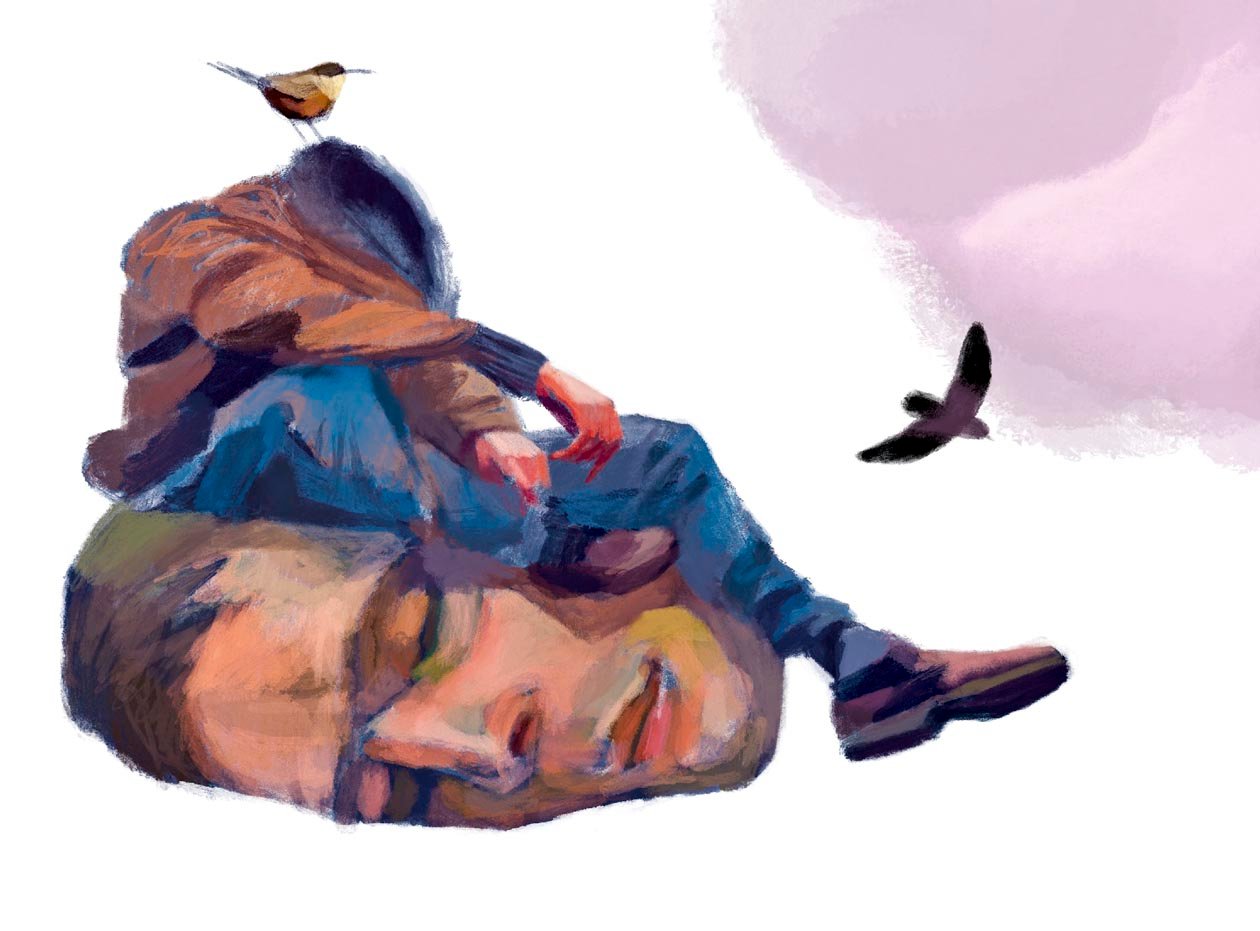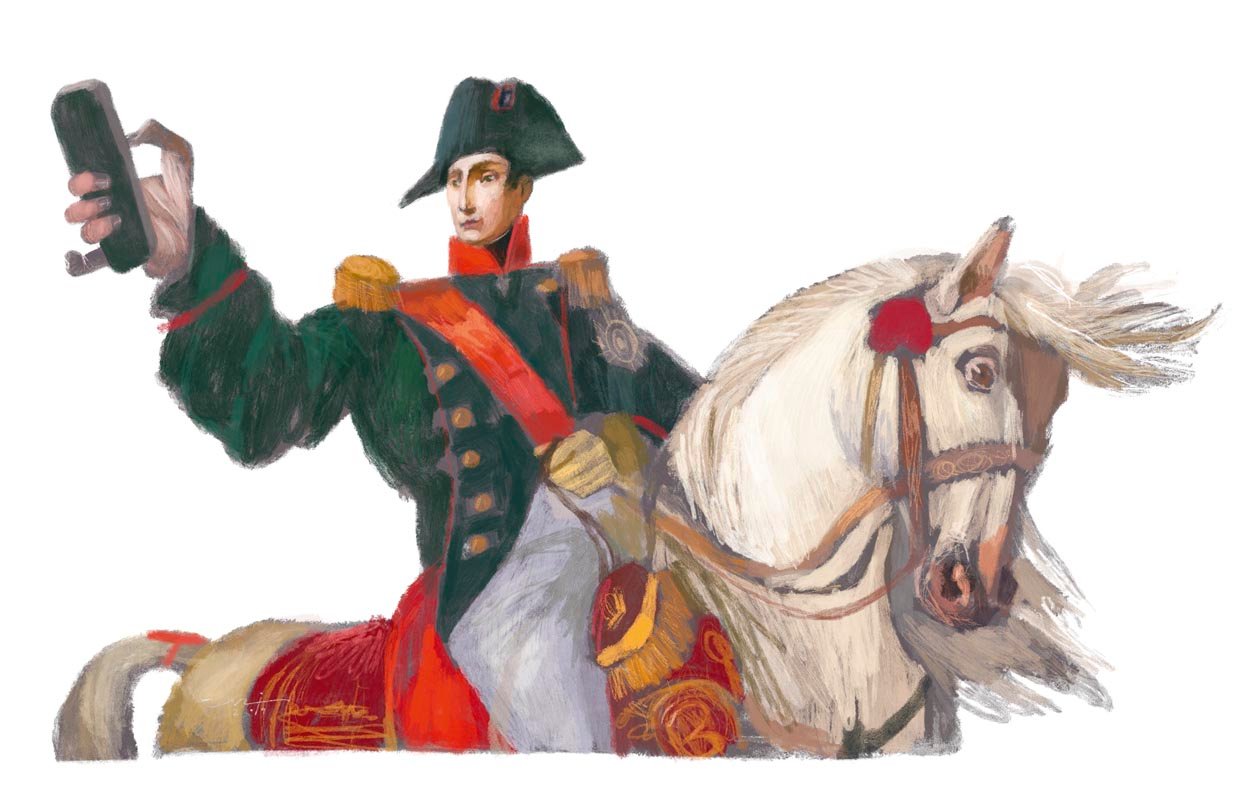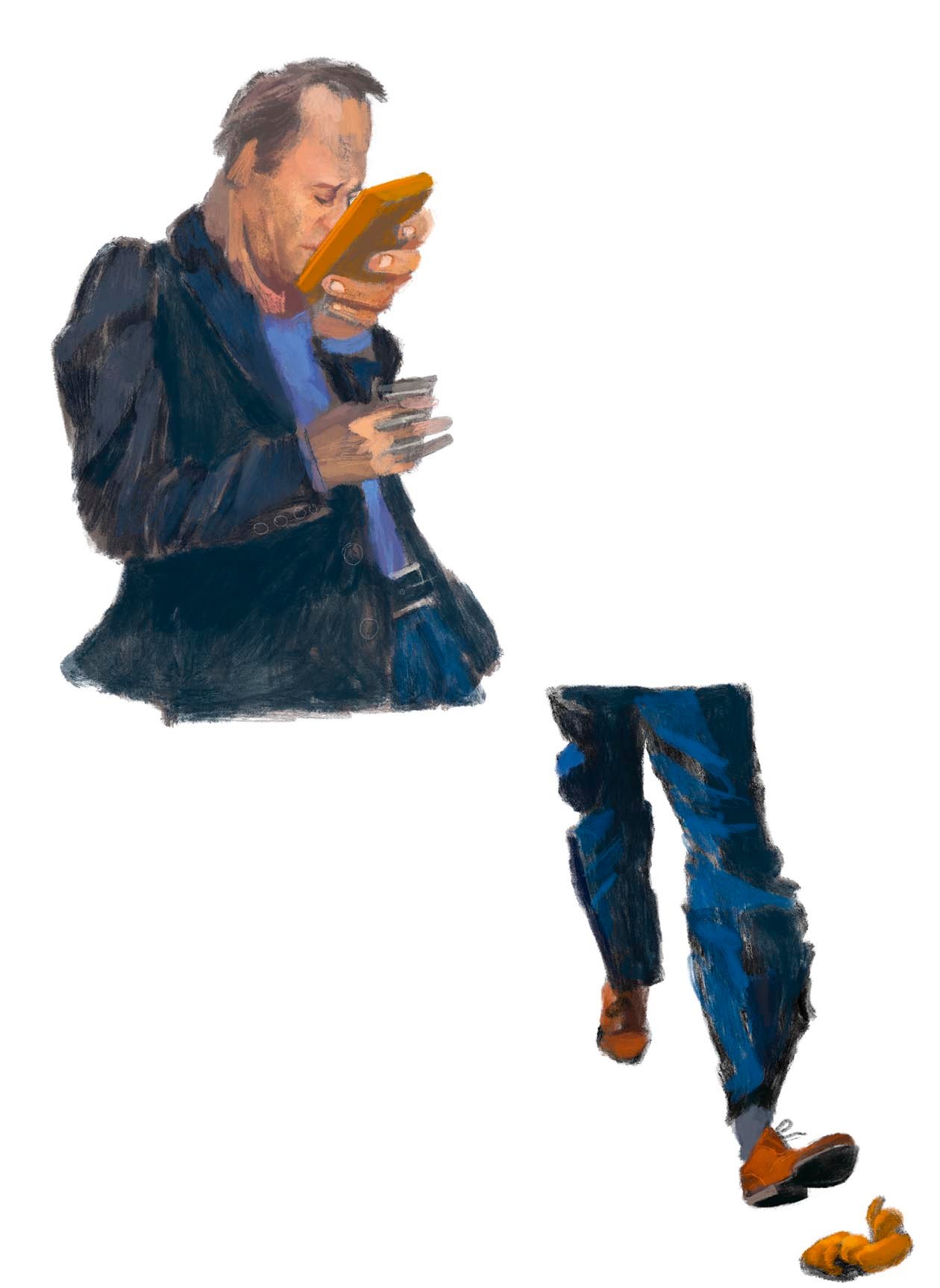
Disconnected
By: Orlando Plata González
Illustrated by: Henry González
Selection and Compilation: Carolina Fonseca
It started out as a simple lapse of attention, a portent of what the future held in store: I lost a small plastic clamp that I used to secure my bag to the handlebars of my bike every day. It was an unassuming but very useful object that had been in my possession for at least fifteen years; the big advantage was that it was re-usable, unlike modern clamps that can only be used once, like almost everything in this world.
I was sure that the tiny gadget was at home and it was exasperating not to be able to lay my hands on it. I searched high and low and went to sleep nursing the simmering fury of someone who has been hard done by fate. Besides, I felt betrayed by my memory, which decided to go AWOL just when the clamp came loose.
During the long night and the following day, I couldn’t think about anything else. I knew it was ridiculous, but I have never liked to lose and I was really annoyed. As if that were not enough, I tormented myself thinking that my memory, my outstanding memory that had allowed me to get ahead at work, could slide even a little off the rails.

That was when I started to feel like a Borges character. After attending the funeral of his platonic love, the illustrious author could not stop thinking about a coin he received in a bar; it became an obsession. This is the Zahir, that basic element of Borgian mythology that haunts a person until it insinuates itself into every last bit of the mind and the senses.
I consider this —mayhap posthumous— thought, because before leaving for the office today, I checked, like I do every day, that my keys and wallet were in my pockets. But I forgot my cell phone, which had fallen into a crack in the sofa, where I had been lying down reading an article titled “The Persistence of Memory.” And that was when I realized that this is indeed the real Zahir.
So I decided to pen this short account to warn future generations, since the consequences of all this, seemingly banal and harmless, will set off the explosion that shatters the realms of everyday life and rends the veil and reveals the shadow of the rose, in other words, brings about the end of civilization as we know it.

That is why I now know, indisputably and fatalistically, that my illness is incurable. I cannot understand how I could forget something to which we modern humans entrust our mind, memory, personal diary, hobbies, calendar, photo album, calculator, music playlist, camera, email inbox, internet connection, taxi service, phone book, GPS, bank account, weather report, and social life planner, among who knows how many other things. It is, in short, our ground wire or Aladdin’s lamp, without which we are incomplete beings in this hyperconnected life.
I don’t know, my world begins to crumble. I see everything in two dimensions, I don’t even remember my address, and I’m not too sure about my name or profession, either. I don’t know the shortest route to my house, whether tomorrow will bring sunshine or pouring rain, how much 73 by 19 is, whether my bank account is solvent or overdrawn, whether my boss has sent me work or not, whether I erased those compromising photos sent by my heartless friends, or whether I will ever be in touch again with my loved ones, whose names, sadly, are already beginning to fade, to gradually become mere wisps of memory.
The truth is that, knowing that I am out of range of my phone, all of a sudden I feel isolated from the world, a post-modern Cain with no data plan, a Robinson Crusoe on an island with no coordinates, a character in a musty chapter of The Twilight Zone, exiled from utopia, separated from humanity, shunned and forgotten, with no Facebook, Instagram, WhatsApp, Shazam, or Twitter to give my existence meaning.




